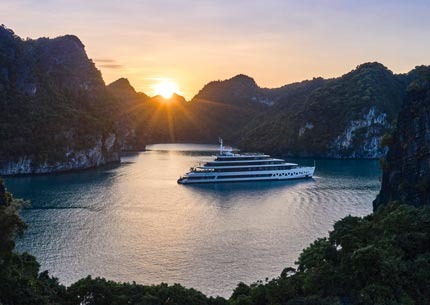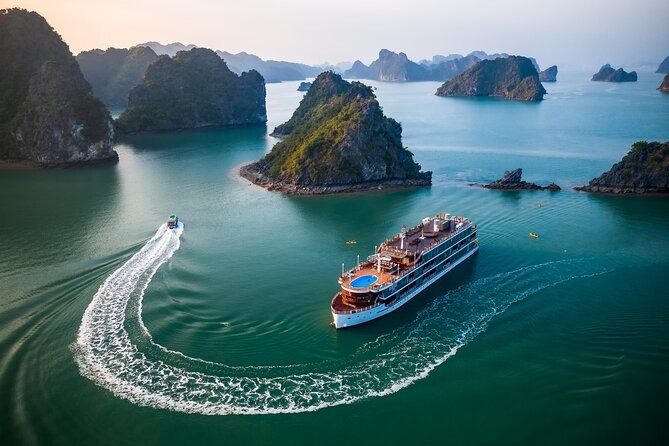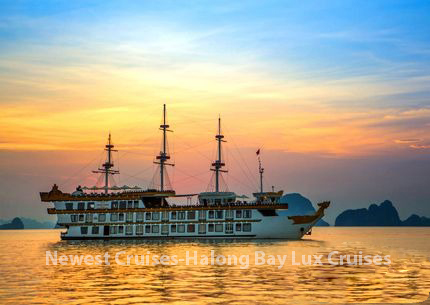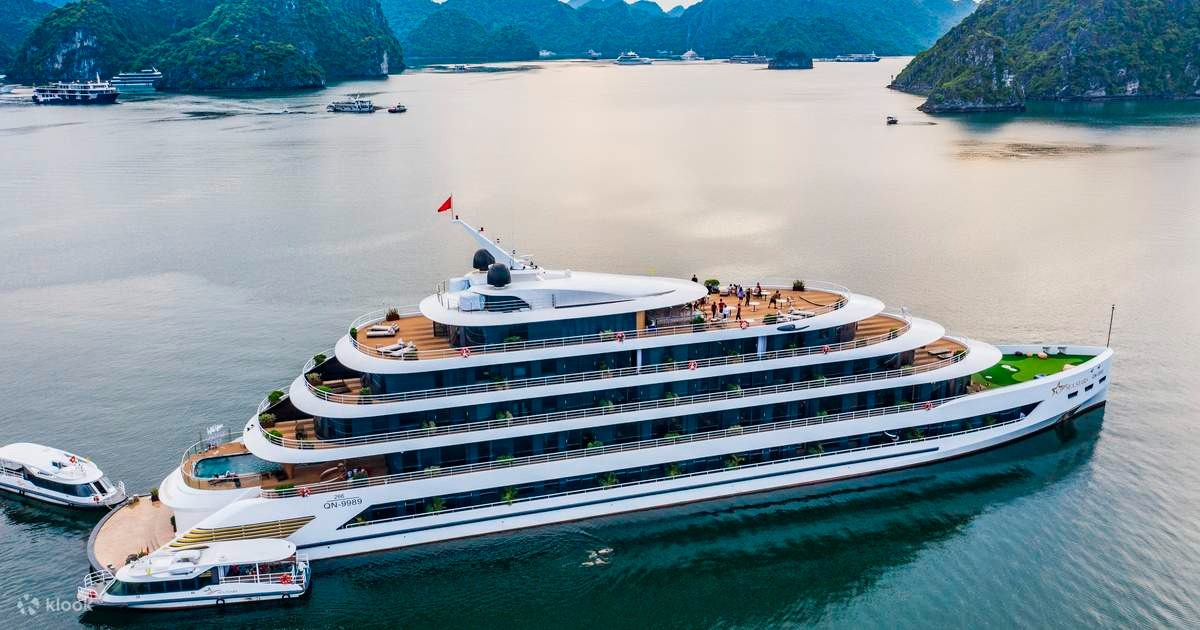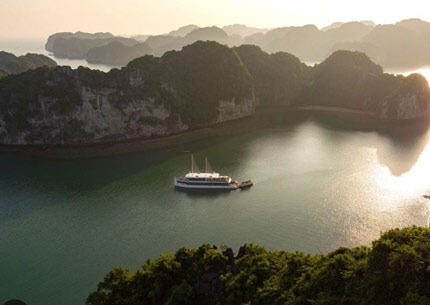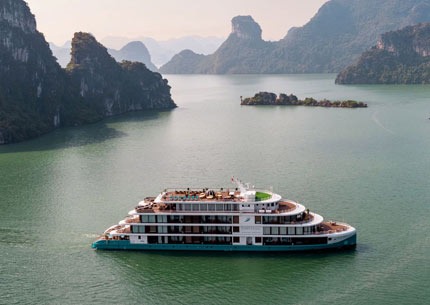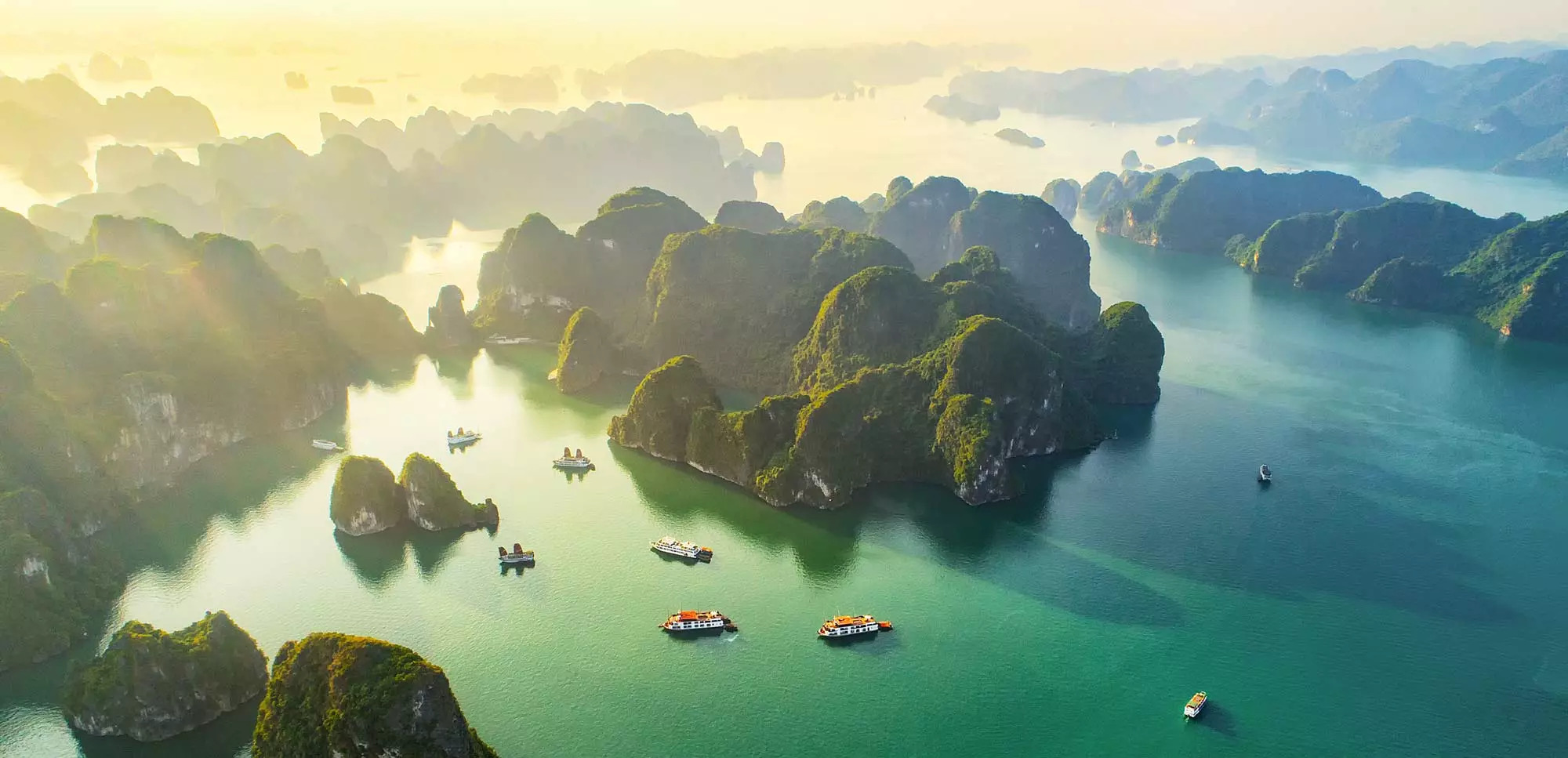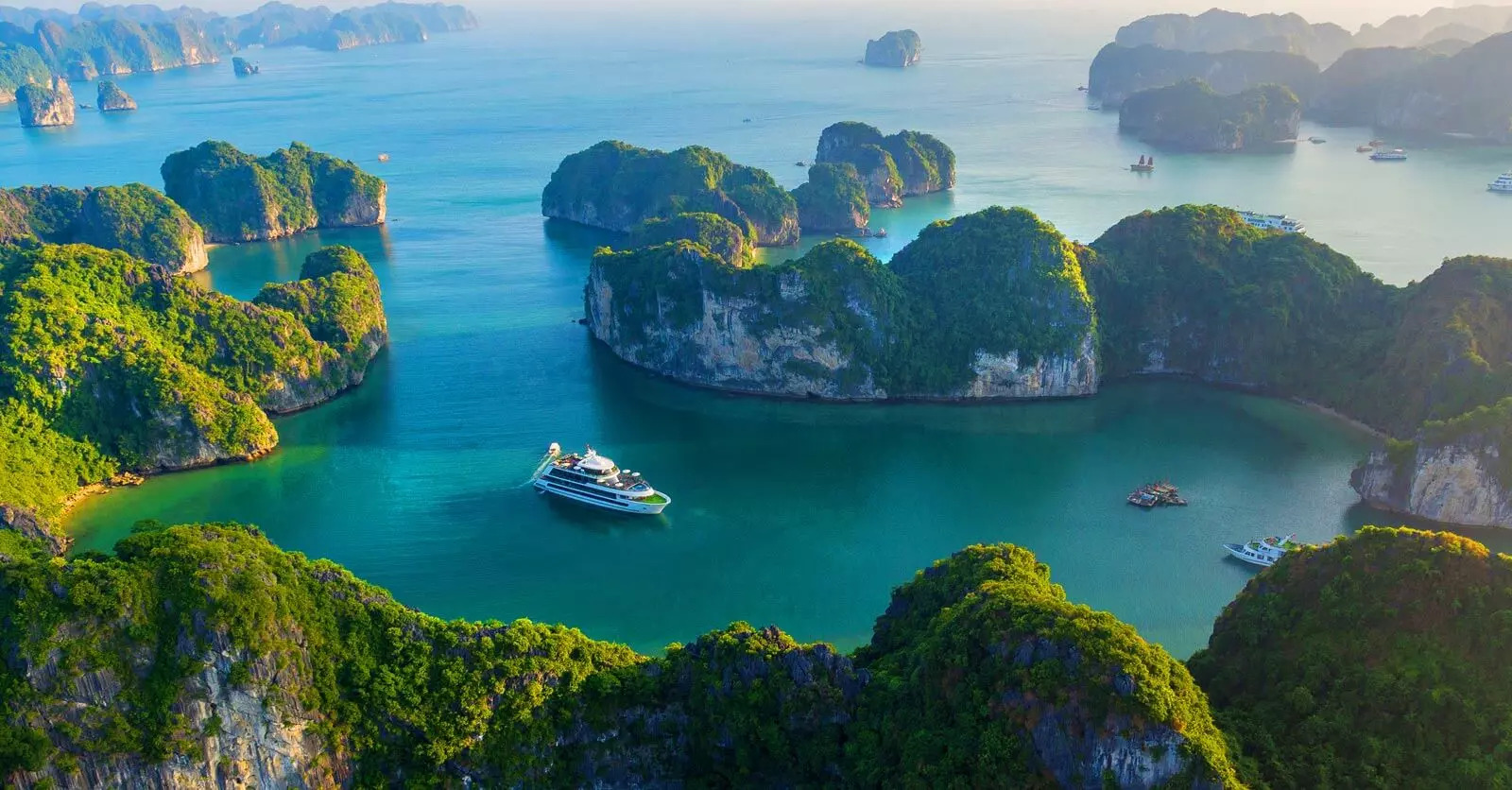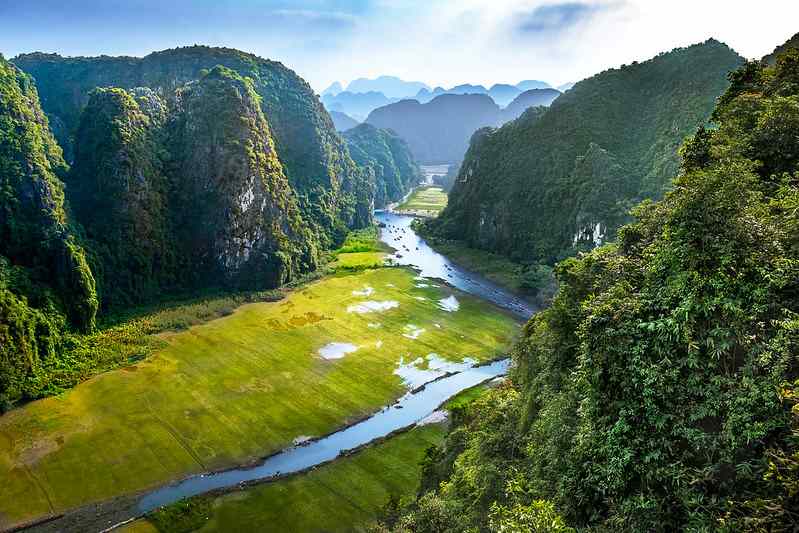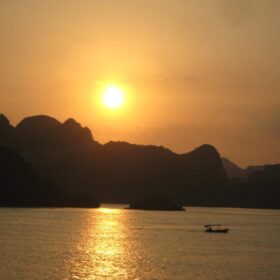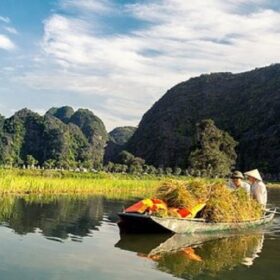Is Vietnam Safe to Travel in 2026-2027? 23 Safety Tips for Tourists
Vietnam is top one country safe for travel. Vietnam continues to rank among Southeast Asia’s safest destinations, attracting millions of visitors with its breathtaking landscapes, rich cultural heritage, and warm hospitality. As global tourism rebounds and evolves post-pandemic, safety remains a top priority for travelers planning their Vietnamese adventures for 2026-2027. This comprehensive guide examines Vietnam’s safety from multiple perspectives, providing you with accurate, up-to-date information to ensure a worry-free journey through this captivating country.
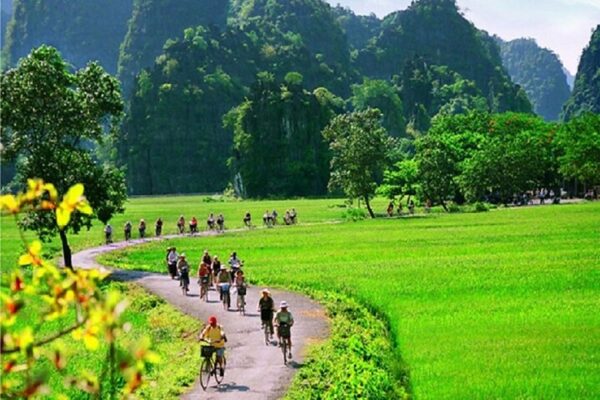
The Current Safety Landscape in Vietnam
Vietnam has solidified its position as one of the safest countries in Asia for international travelers in 2025. The Global Peace Index now ranks Vietnam 28th out of 163 countries worldwide, marking a significant improvement from its 41st position in 2023. This ranking places Vietnam ahead of popular tourist destinations like Thailand (73rd) and the United States (122nd).
Recent statistics from the Vietnam National Administration of Tourism reveal that international visitor numbers have surged to 23.4 million in 2024, with projections indicating over 27 million visitors by 2026. This growing popularity stems not only from Vietnam’s cultural and natural attractions but also from its reputation as a secure destination.
The Vietnamese government has implemented comprehensive safety measures as part of its Tourism Development Strategy 2025-2030, including:
- Enhanced tourist police presence in major destinations
- Improved emergency response systems
- Stricter regulations for tourism service providers
- Advanced surveillance systems in popular tourist areas
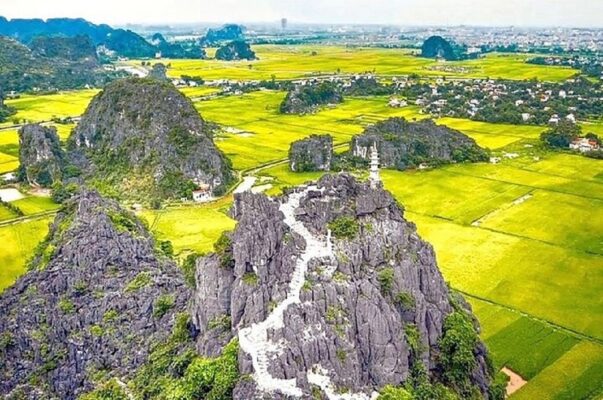
Safety Comparison with Neighboring Countries
When compared to its Southeast Asian neighbors, Vietnam consistently ranks favorably in safety metrics:
| Country | Global Peace Index (2025) | Crime Index
|
|---|---|---|
| Vietnam | 28th | 35.2 |
| Thailand | 73rd | 42.1 |
| Cambodia | 98th | 52.7 |
| Indonesia | 56th | 45.9 |
| Malaysia | 21st | 43.5 |
Crime Rates and Personal Safety in Vietnam
Vietnam maintains relatively low crime rates, particularly for violent crimes against tourists. According to the latest data from the Ministry of Public Security, serious crimes affecting tourists decreased by 17% in 2024 compared to previous years.
Common Security Concerns
While Vietnam is generally safe, travelers should remain vigilant against petty crimes that typically occur in crowded tourist areas:
- Pickpocketing and bag snatching: Most common in bustling markets and crowded streets of Ho Chi Minh City and Hanoi
- Taxi scams: Unmetered taxis or drivers taking longer routes
- Counterfeit goods: Particularly when purchasing luxury items
- ATM skimming: Primarily in less secure, standalone machines
Expert tip: Carry a cross-body bag with secure zippers, keep valuables in your accommodation’s safe, and use reputable ride-hailing apps like Grab or Be instead of hailing taxis from the street.
Is Vietnam Safe for Solo Travelers?
Vietnam ranks among the top 10 destinations worldwide for solo travelers in 2025, according to the Solo Travel Safety Index. The country offers an ideal balance of adventure, cultural immersion, and security that appeals to independent explorers.
Solo Female Traveler Safety
Female travelers consistently report positive safety experiences in Vietnam. A 2024 survey by Women’s Travel Alliance found that 95% of female respondents felt “very safe” or “safe” during their Vietnam travels—higher than the regional average of 76%.
The Vietnamese culture generally shows great respect toward women, and harassment incidents are relatively rare compared to many other destinations.
Practical advice: While Vietnam is safe for women traveling alone, taking standard precautions remains important:
- Dress modestly when visiting religious sites or rural communities
- Use reputable transportation, especially for night travel
- Stay in accommodations with 24-hour reception and positive safety reviews
- Join small group tours for activities in remote areas
Digital Nomad Safety
With Vietnam’s emerging status as a digital nomad hub, particularly in cities like Da Nang, Hoi An, and Ho Chi Minh City, safety for long-term visitors has become increasingly important.
Co-working spaces and digital nomad communities provide built-in safety networks. Da Nang, with its 30+ co-working facilities, has established itself as Vietnam’s digital nomad capital with an extremely low crime rate of just 0.3 incidents per 1,000 visitors.
Transportation Safety Across Vietnam
Air Travel Safety
Vietnam’s aviation safety standards have improved significantly in recent years. The Civil Aviation Authority of Vietnam received a Category 1 safety rating from the U.S. Federal Aviation Administration in 2023, confirming compliance with international safety standards.
Major carriers like Vietnam Airlines, Bamboo Airways, and VietJet Air maintain modern fleets with average aircraft ages of less than 7 years.
Safe Travel Options
For navigating Vietnam safely:
- Ride-hailing apps: Grab and Be offer transparent pricing and tracked journeys
- Private drivers: Pre-arranged through hotels or reputable agencies
- Trains: The North-South railway line (1,726 km from Hanoi to Ho Chi Minh City) provides a safer alternative to road travel
- Guided tours: Professional transportation with experienced drivers
When exploring Ha Long Bay, opting for a reputable cruise provider is essential. Ha Long Bay Lux Cruises maintains vessels that meet international safety standards with regular safety drills, modern navigation equipment, and experienced crews.
Health and Medical Safety
Vietnam’s healthcare infrastructure has improved considerably, particularly in major cities where international-standard facilities are available.
Common Health Concerns
Travelers to Vietnam should be aware of these health considerations:
- Foodborne illness: While Vietnamese cuisine is generally safe, street food hygiene varies
- Mosquito-borne diseases: Dengue fever occurs year-round, with peak season during summer months
- Air quality: Major cities may experience poor air quality, particularly during winter months
- Water safety: Tap water is not potable throughout the country
Medical facilities: Vietnam now has 43 JCI-accredited medical facilities (international standard certification), primarily concentrated in Hanoi and Ho Chi Minh City.
Vaccination and Health Preparation
The Vietnamese Ministry of Health recommends these vaccinations for visitors:
- Routine vaccines (MMR, diphtheria-tetanus-pertussis, etc.)
- Hepatitis A and B
- Typhoid
- Japanese Encephalitis (for long stays or rural travel)
- Rabies (for extended stays or wildlife encounters)
Health insurance: Comprehensive travel insurance with medical coverage is essential, as quality healthcare can be expensive. Policies should include emergency evacuation coverage, particularly for travelers exploring remote areas.
Natural Disasters and Weather Safety
Vietnam’s geography makes it vulnerable to certain natural events, though improved forecasting and warning systems have enhanced safety.
Typhoon and Flooding Risk
The central and northern coastal regions experience typhoon season from June to November, with August and September seeing the highest activity. On average, Vietnam experiences 4-6 typhoons annually.
The Mekong Delta and central regions may experience flooding during heavy monsoon rains.
Safety systems: Vietnam’s Disaster Management Authority has implemented a sophisticated early warning system using satellite data and AI prediction models that can forecast severe weather events up to 72 hours in advance with 87% accuracy.
Regional Weather Considerations
Different regions have distinct weather patterns that affect travel safety:
- Northern Vietnam: Winter months (December-February) can bring cool, damp conditions with temperatures occasionally dropping below 10°C (50°F)
- Central Vietnam: Heavy rainfall and potential flooding from September to December
- Southern Vietnam: Hot year-round with a distinct rainy season from May to November
Planning tip: For optimal weather conditions and safety, the best times to visit Ha Long Bay are March to April and September to November. During these periods, you can enjoy 2-day luxury cruises through Ha Long and Lan Ha Bay with minimal risk of cancellations due to adverse weather.
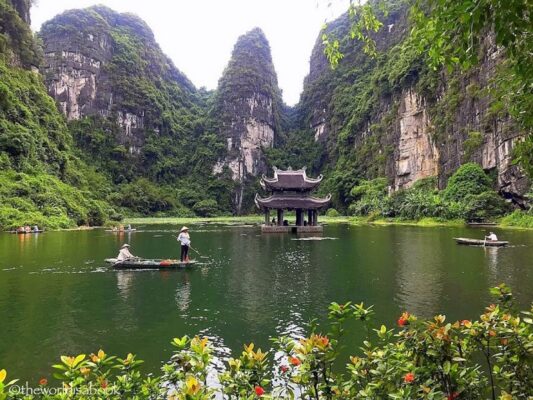
Cultural Safety and Etiquette
Understanding and respecting Vietnamese cultural norms contributes significantly to a safe and positive experience.
Religious and Cultural Sensitivities
Vietnam is predominantly Buddhist with significant Catholic and indigenous religious influences. When visiting religious sites:
- Dress modestly, covering shoulders and knees
- Remove shoes when entering temples and pagodas
- Ask permission before photographing monks or ceremonies
- Speak quietly and respectfully within sacred spaces
Political Considerations
Vietnam remains a single-party socialist state, and certain topics can be sensitive:
- Avoid public criticism of the government
- Political demonstrations are rare and should be avoided
- Photography of government buildings or military installations is prohibited
Cultural insight: Vietnamese people typically separate political matters from personal interactions with visitors, and tourists who respect local customs rarely encounter problems related to political differences.
Digital Security and Cybersafety
Digital infrastructure in Vietnam has developed rapidly, with 4G coverage reaching 98% of populated areas and 5G available in major cities.
Internet Access and Restrictions
Vietnam maintains some internet restrictions, but most traveler services are accessible:
- Social media platforms operate normally
- Some international news sites may be blocked
- VPNs are commonly used by expatriates and long-term visitors
Connectivity tip: For reliable internet access, purchase a local SIM card from reputable providers like Viettel, Vinaphone, or Mobifone. A 30-day tourist package with 60GB of data costs approximately 300,000 VND (about $12 USD).
Cybersecurity Precautions
To protect your digital information while traveling:
- Use secure, password-protected Wi-Fi networks
- Enable two-factor authentication for important accounts
- Consider using a VPN for additional security
- Be cautious when using public computers or charging stations
Regional Safety Guide: Where to Visit in Vietnam
Northern Vietnam Safety
The mountainous north offers spectacular scenery but requires additional safety considerations:
- Sapa and Mountainous Regions: Roads can be challenging during rainy seasons
- Ha Long Bay: Choose licensed cruise operators with proper safety equipment
- Rural Homestays: While generally very safe, basic facilities may lack Western safety features
For an unforgettable yet safe experience in Ha Long Bay, consider booking a 3-day luxury cruise through Lan Ha and Ha Long Bay. These extended journeys allow you to explore the 1,969 limestone islands while maintaining comfort and security throughout your adventure.
Central Vietnam Safety
Central Vietnam combines historical sites with beautiful beaches:
- Hue: The imperial city is very safe for tourists
- Da Nang: Modern infrastructure and low crime rates
- Hoi An: Well-lit Ancient Town with effective security
Southern Vietnam Safety
The southern regions offer diverse experiences:
- Ho Chi Minh City: Exercise caution in crowded areas
- Mekong Delta: Choose reputable boat operators
- Con Dao and Phu Quoc Islands: Generally very safe but check weather conditions during monsoon season
Emergency Resources and Support
Emergency Contacts
Keep these emergency numbers saved:
- Police: 113
- Fire: 114
- Ambulance: 115
Embassy and Consular Support
Most major countries maintain diplomatic missions in Vietnam:
- United States: Embassy in Hanoi and Consulate in Ho Chi Minh City
- United Kingdom: Embassy in Hanoi and Consulate in Ho Chi Minh City
- Australia: Embassy in Hanoi and Consulate in Ho Chi Minh City
- Canada: Embassy in Hanoi
Preparation tip: Register your travel plans with your country’s embassy or consular service before arrival in Vietnam.
Practical Safety Tips for Vietnam Travel
Money and Valuables Security
- Use hotel safes for passports and excess cash
- Carry only necessary cash for daily activities
- Utilize reputable ATMs attached to banks
- Consider a money belt for important documents
Communication Safety
- Purchase a local SIM card for reliable communication
- Download offline maps before traveling to remote areas
- Learn basic Vietnamese phrases for emergencies
- Save emergency contacts in your phone
Accommodation Safety
- Choose properties with positive safety reviews
- Verify security features like 24-hour reception and in-room safes
- Share your itinerary with trusted contacts
- Research neighborhood safety before booking
Vietnam Safety FAQs
Is Vietnam safe for families with children?
Yes, Vietnam is increasingly catering to family travelers with child-friendly attractions and accommodations. Major cities and tourist destinations offer excellent facilities for families. The Vietnamese culture highly values children, and locals are typically very accommodating to families.
Is the tap water safe to drink in Vietnam?
No, tap water throughout Vietnam is not considered safe for drinking. Bottled water is widely available and affordable (typically 10,000-20,000 VND or $0.40-$0.80 USD for a 1.5-liter bottle).
Are there any areas tourists should avoid in Vietnam?
While most of Vietnam is safe for tourism, some remote border areas with China, Laos, and Cambodia have travel restrictions. Always check current advisories before visiting less-developed regions.
How safe is public transportation in Vietnam?
Public transportation safety varies significantly. Domestic flights and major train routes are generally safe, while local buses can be crowded and uncomfortable. Ride-hailing apps provide the safest and most reliable urban transportation.
Conclusion: Vietnam’s Safety Outlook for 2026-2027
Vietnam continues to strengthen its position as one of Southeast Asia’s safest travel destinations. With improving infrastructure, enhanced tourist services, and a national commitment to visitor safety, travelers can anticipate positive experiences throughout the country.
While normal travel precautions remain important, Vietnam’s combination of low crime rates, political stability, and genuine hospitality makes it an excellent choice for travelers seeking both adventure and security in 2025-2027.
For travelers looking to experience the iconic limestone karsts of Ha Long Bay, Ha Long Bay Lux Cruises offers premium journeys that prioritize both safety and comfort, allowing you to focus on the breathtaking natural beauty rather than safety concerns.
By staying informed, respecting local customs, and making thoughtful choices, your Vietnamese adventure will likely become one of your most memorable—and safest—travel experiences.
Hotline | WhatsApp: +84.978.358.422
Phone | WhatsApp: +84.962.261.687
Email: halongbayluxcruises@gmail.com
vietnammarveltravel@gmail.com

